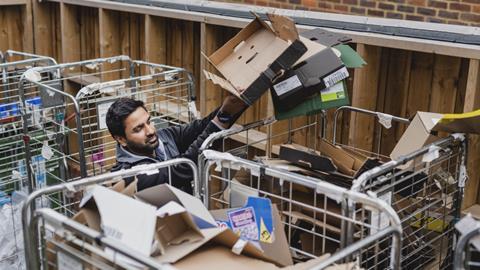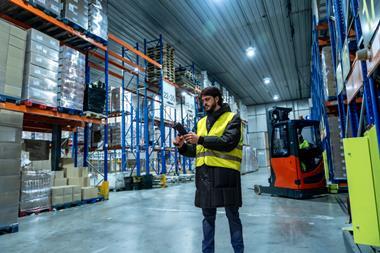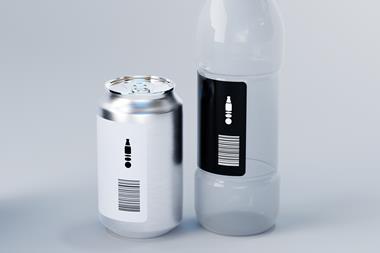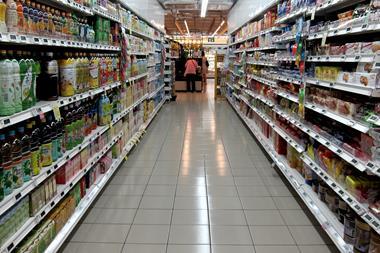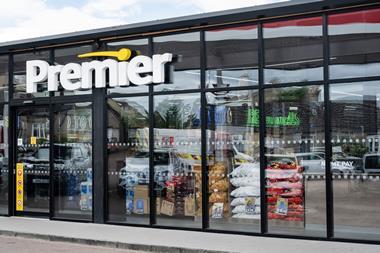With the global environment and climate change increasingly in the consumer eye, sustainable trading has become a responsibility that all businesses, including convenience retailers, must address – and there are plenty of ways they can do so, says Ruth Forbes, sustainability director at JTI UK.
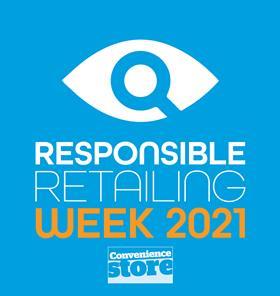
“Last month, JTI was proud to partner with Convenience Store on its first Responsible Retailing Week. We met with retailers who are working on the front line and discussed the plethora of challenges they face daily as responsible retailers. For them, it doesn’t just stop at selling age-restricted goods; now, more than ever, running a sustainable store is also an important part of responsible retailing.
”It has never been more important for businesses of all sizes to think and act sustainably, not just for the good of the industry, but for society and the planet”
“As COP26 draws to a close in Glasgow, the spotlight shining on sustainability has never been brighter. Climate change represents a truly global threat to the future of the planet. It has never been more important for businesses of all sizes to think and act sustainably, not just for the good of the industry, but for society and the planet.
“It’s not only retailers, manufacturers and those involved in the retail industry; businesses across all sectors need to bring greenhouse gas emissions to net zero by the UK Government’s 2050 deadline. While this is still some time away, the issue demands attention now and, at JTI UK, we are committed to leading the way in helping the industry become more sustainable.
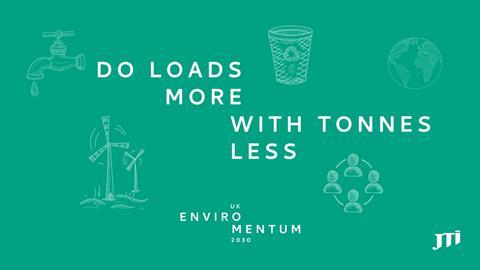
“It has been one year since we launched our UK Environmental Plan 2030 and, in 2022, we will continue to work towards several ambitious sustainability targets across five key focus areas: emissions, energy, waste, water and stakeholder engagement.
“This includes pledging to become net zero in our UK operations by 2030 – 20 years ahead of the government’s current deadline. We are also committed to increasing recycling rates of general waste to 75% and reducing general waste by 20% – helping to save 22.8 tonnes (t) of waste being generated and recycling an additional 21.2t each year by 2030. By the end of this decade, we will also have transitioned our sales fleet to electric vehicles – helping to save 776t of CO2e emissions – the equivalent to 155 hot air balloons per year.
“We’ve also embedded new ESG criteria in all UK procurement tenders from this year.
“Additionally, we have built a new Global Sustainability Programme Team of experts across different functions, including scientific, R&D, marketing and procurement. The team help accelerate our progress towards becoming a more sustainable business. The team’s primary role is to reduce the environmental impact of our product portfolio. This new approach has seen our tobacco business committing to reducing its packaging (including plastic), ensuring it’s 85% reusable or recyclable by 2025, rising to 100% by 2030.
Tips for sustainable retailing
“While JTI is doing all it can to reduce its impact and is communicating this to retailers, the company recognises the need to support our trade partners, who are on their own sustainability journeys, some further along than others. We’ve recently partnered with the UK’s leading Responsible Business Network Business in the Community (BITC) to spread the word on practical steps that can be taken to become more sustainable in the retail environment.
“We know that shoppers are becoming more environmentally conscious, so being a more sustainable business will not only help retailers stand out from the crowd and attract these customers to their stores, but it can also reduce monthly outgoings.
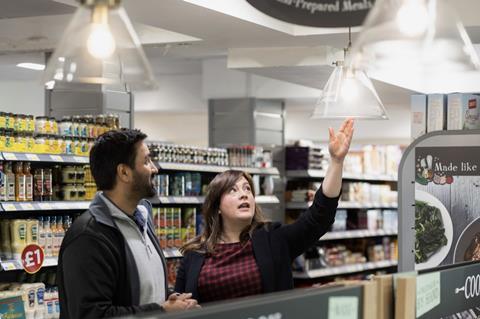
“Each store will be different, but we’d suggest retailers review energy efficiency levels overall in their store and install energy-efficient refrigeration and LED lighting to help reduce in-store energy consumption. In addition, they could look to introduce light sensors or a ‘switch off’ policy for staff in areas that aren’t in constant use, such as a stock room, to further reduce energy use and cut bills.
“Reducing plastic bags and opting for refillable solutions on goods where possible can really make a difference. Converting to digital paperwork is another great solution for retailers. JTI recently moved to digital invoicing in the independent channel, so retailers can now choose to sign up to receive their paperwork digitally rather than on a till roll.
“Retailers can also turn their attention to reducing food waste. Some retailers are going to fantastic lengths to do this – from partnering with great food waste apps, which can be a positive way for retailers to recuperate some capital back from food that would otherwise be wasted, to supporting local charities, such as those helping people who are homeless.
“We would also encourage retailers to speak to their waste contractors about any food waste that is still left over. We have been working to reduce food waste at our JTI UK HQ office in Weybridge, and anything left over goes into anaerobic digestion, which naturally breaks down all the nutrients to create gases and by-products, which in turn, become energy and fertiliser. Our used cooking oils are collected, treated and turned into biodiesel.
“We are committed to supporting the environmental sustainability of our retail customers and as we look ahead to 2022, this aim remains the same. We’re continuing to make changes to support retailers to minimise waste and maximise recycling. Recent examples include no longer sending out laminated planograms to our trade partners. Instead, we print our planograms on recyclable synthetic paper to ensure longevity and then send them out in envelopes, which are easy for retailers to recycle. All paper and card used in our UK PoSM – such as posters, shelf-edge labels, and leaflets – are created using non-toxic inks as well using FSC-accredited paper. Every little change can stack up.
“Responsible retailing will continue to be a priority for JTI, and we will continue to share more information and practical advice with our trade partners. Only together can we make a change.”
Visit the JTI Advance microsite to find out more.





















